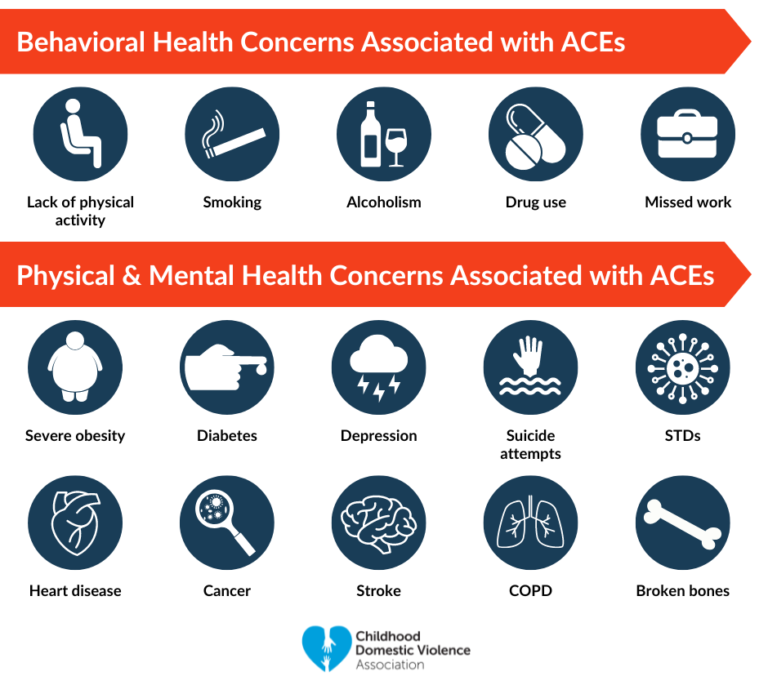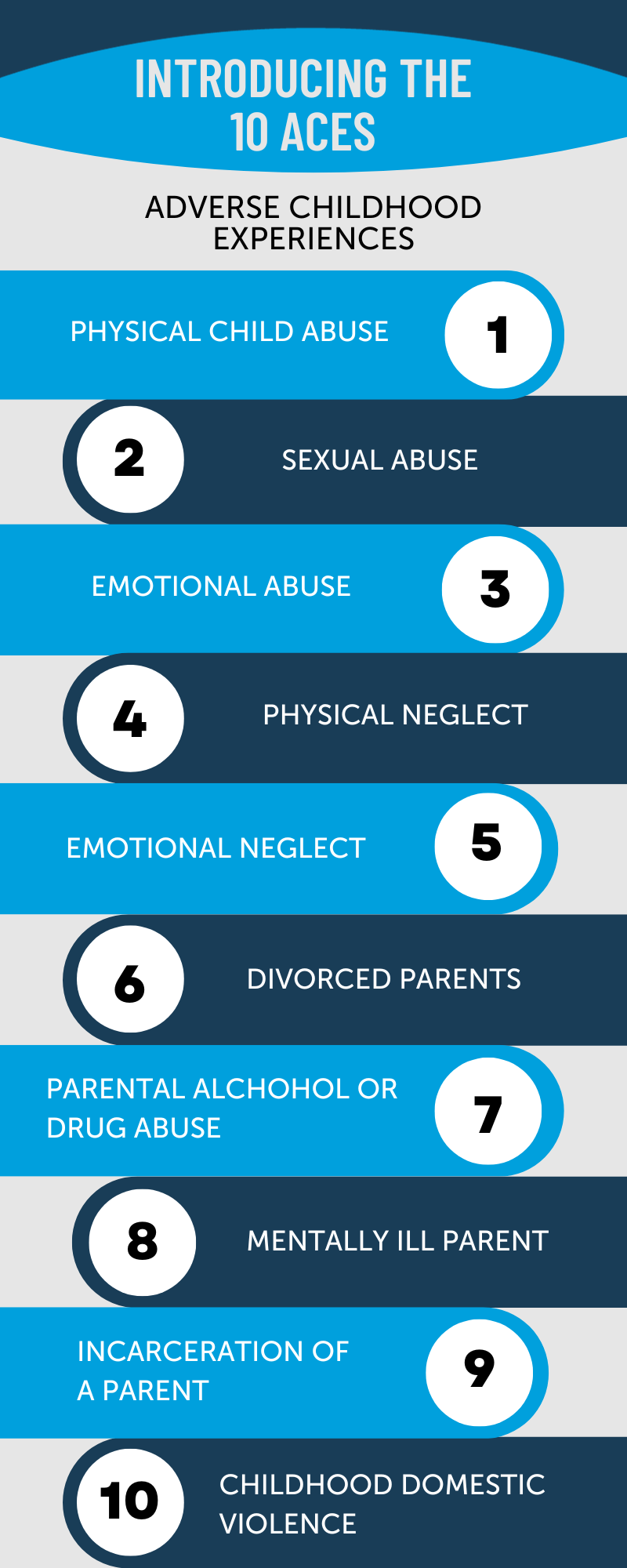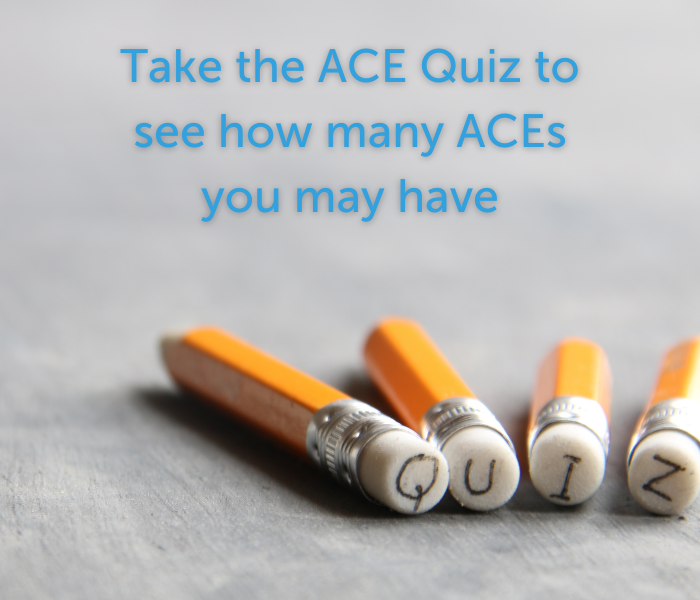Childhood domestic violence is the least known adverse childhood experience
If you experienced childhood domestic violence, odds are, you faced a number of other adversities in your childhood home. However, CDV tends to be the one that is the least known.
The term “Adverse Childhood Experiences” (ACEs) comes from the CDC-Kaiser Permanente Study conducted in 1995-1997. The study originally began in an obesity clinic. As the study grew, it started to uncover links between childhood trauma, chronic disease, and mental health.
It became the largest body of research to categorize the types of childhood trauma faced primarily in home and to understand the long-term impacts. The majority of the adversities identified are universally known and have a corresponding level of awareness, such as divorce, child sexual abuse, physical child abuse, parental incarceration, addiction or mental illness.
Childhood Domestic Violence (CDV) was one of the adversities, they did not have a name for, so they used descriptors in its place. Descriptors like, ‘Was your mother or stepmother often pushed, grabbed, slapped or had something thrown at her.” There were several more of these ‘descriptors’ used to identify if someone experienced childhood domestic violence.
What was also identified was that if you experienced childhood domestic violence, you almost always experienced another ‘adverse childhood experience’. Childhood domestic violence is not expeirenced in a vacuum. And more than half of those who experience CDV, experience at least FIVE other adversities in their childhood home. But the least known is CDV.
“Things changed for the better the moment I learned that I experienced Childhood Domestic Violence. It shined a light on the missing puzzle piece of my life.” CDVA board member.
The Impact of ACEs
According to the CDC, “Toxic stress from ACEs can change brain development and affect how the body responds to stress. ACEs are linked to chronic health problems, mental illness, and substance misuse in adulthood.”
The stress caused by ACEs can cause chemical disruptions in the brain, impeding proper development. When a child lives in a constant state of fight or flight, the regular release of adrenaline and cortisol build up into toxic stress. This process redirects more resources to the survival part of the brain. Furthermore, according to studies conducted by the CDC-Permanente Study, ACEs can even damage DNA and shorten lifespan.
ACEs can also impact social and cognitive development, leading to difficulties in forming healthy relationships, academic challenges, and decreased resilience in coping with life’s stresses.

The Numbers of ACEs Predicts the Future
The ACE Study discovered that not only do these ACE’s impact a life, but they often co-occur – where there’s one adversity, there are often more. According to researcher Jeff Edleson, more than 50% of those who experience CDV experience 5 or more other adversities as well.
For example, CDV is frequently linked to physical child abuse. One study finds that seven in ten men who are violent toward their partners are also violent toward their children. Another suggests that in homes with CDV, children are 15 times more likely to be abused by a parent.
ACE studies utilize ACE scoring, finding that the higher someone’s ACE score, the more types of childhood adversity they experienced. Consequently, this increases the degree of impact.
Take the ACE quiz by clicking on the image.
One thing you must know if you experienced ACE's
“No matter the adversity faced in your childhood home, there is an impact in common that goes well beyond the pain experienced in the moment. And that is this – you form negative beliefs about yourself as a result of growing up facing adversity in your childhood home.
Negative beliefs like, I’m guilty, fearful or worthless. In the same way that there are 10 adversities, there are 10 common negative beliefs or LIES you learns about who you believe you are, and they hold you back from reaching your innate potential and experiencing all the happiness that was meant for you.
These lies do not just go away when one reaches adulthood. They grow stronger, unless they are challenged. And when they are challenged, you are then able to utilize the hidden strengths the experience left behind. I’ve developed an exercise to uncover the lies and reveal the truths – this exercise is the first step.”


